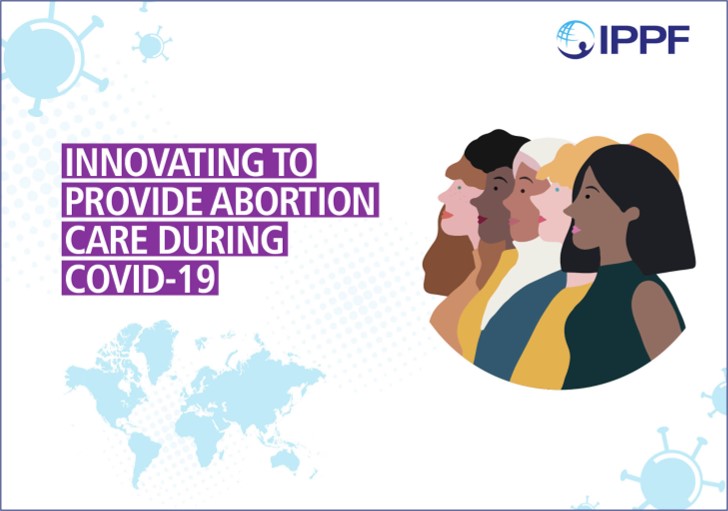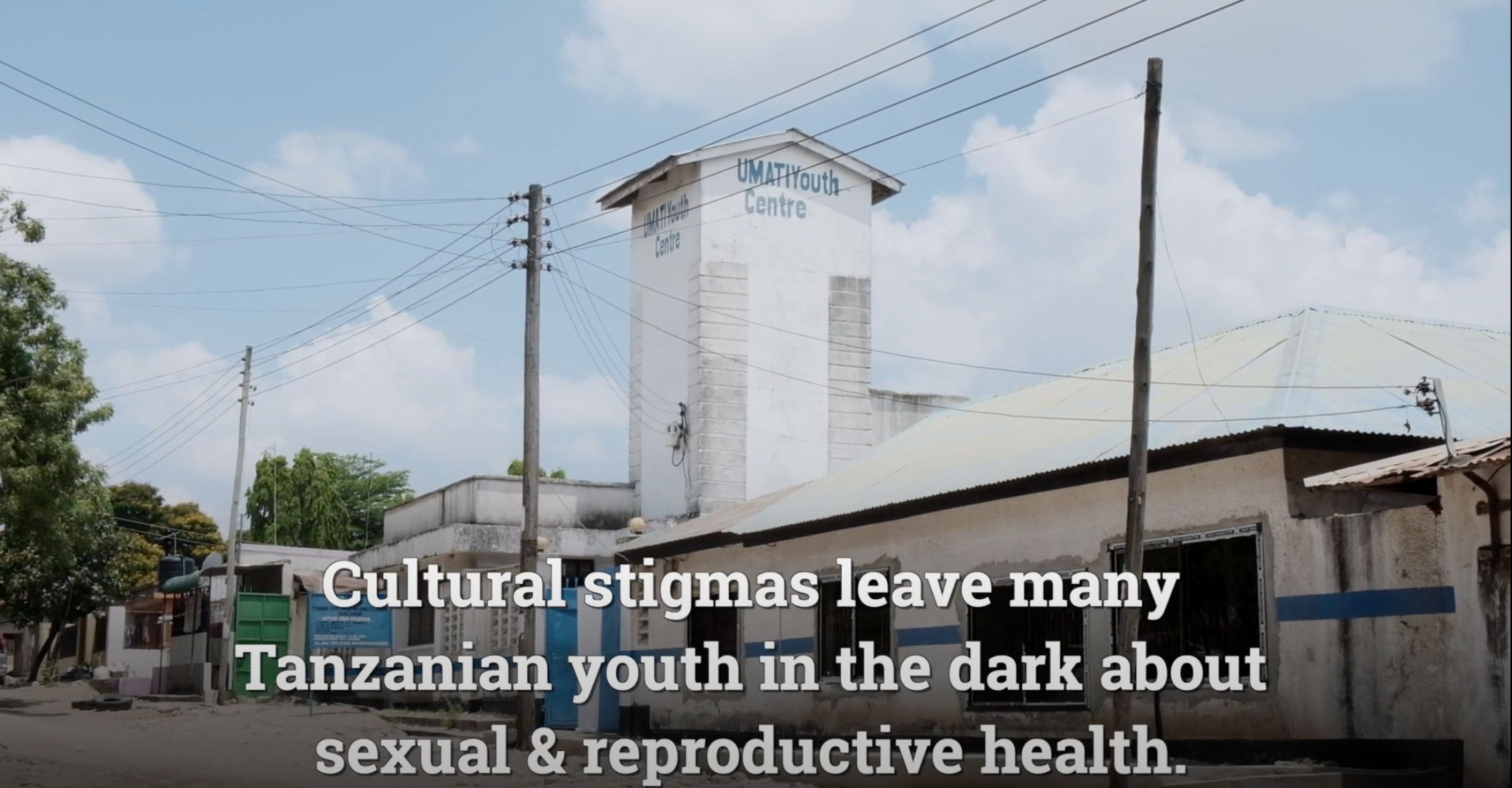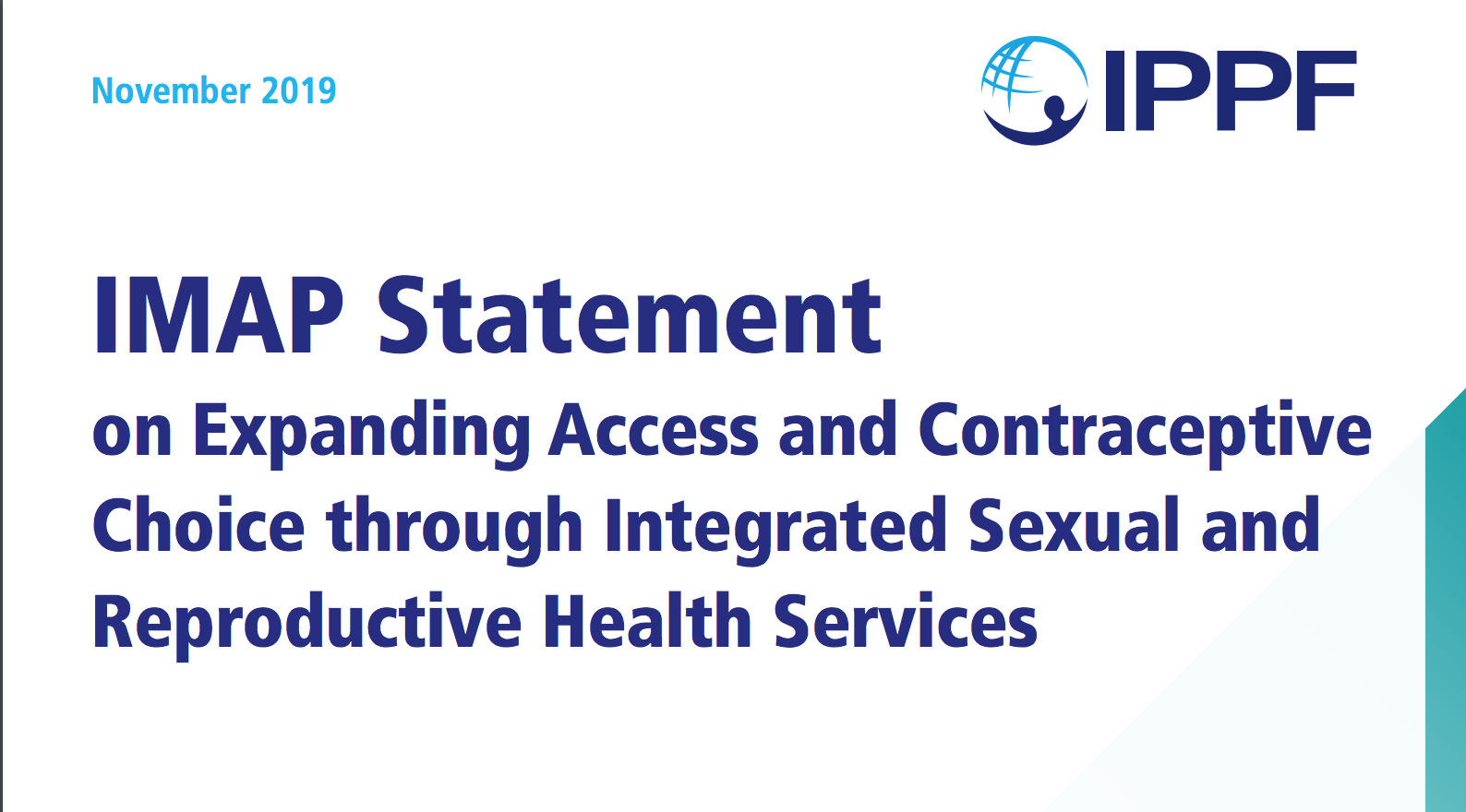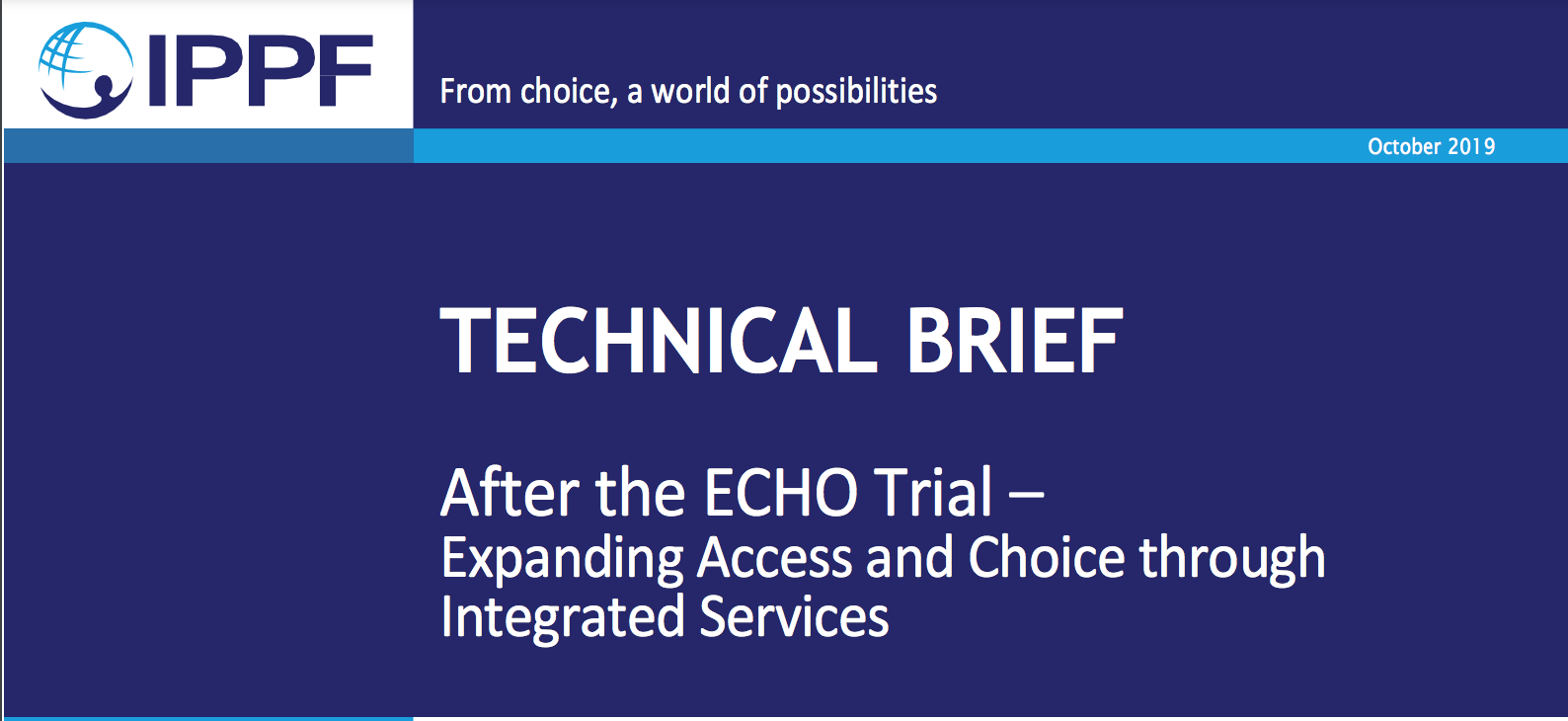Spotlight
A selection of resources from across the Federation

HIV Theory of Change
Our HIV Theory of Change is to clarify the goals and vision of IPPF’s HIV programme and to articulate the different pathways and strategies IPPF uses to contribute towards its HIV goals and vision.
Filter our resources by:


| 24 September 2020
Innovating to provide abortion care during COVID-19
During the COVID-19 pandemic, women globally face compounded barriers to accessing safe abortion care. The de-prioritization of sexual and reproductive health services including abortion care, overwhelmed health systems, restrictions on movement and fear of visiting health facilities have all created additional challenges for women to safely end a pregnancy. However, recognizing the need to adapt to ensure women have access to the care they need, this crisis has sparked innovation among IPPF Member Associations. They developed new approaches to reach women with safe abortion information and care, while keeping women’s choice and quality of care at the centre of their work. This document illustrates some of the innovative approaches used to ensure continued access to quality abortion care during the pandemic.

| 21 September 2020
It's All One Curriculum
Researchers have identified gender inequality as a key factor driving the AIDS pandemic. Policymakers have called for sexuality and HIV education that emphasizes gender equality and human rights. Educators want to teach young people the critical thinking skills needed to build compassionate and just societies. It's All One Curriculum responds to these calls.

| 12 August 2020
Tanzania: A youth center on a mission to destigmatize sexual health
Cultural stigmas leave many young people in Tanzania in the dark about their sexual and reproductive health and rights. Our Member Association - Chama cha Uzazi na Malezi Bora Tanzania (UMATI) - has come up with a solution at their youth center in Dar es Salaam: peer-to-peer educators. Every week over 100 youth sign up for services and training at the center. In 2017 the Global Gag Rule pulled funding from UMATI, however, the Belgian Government stepped in with emergency funding which allowed the center to remain open through the She Decides project.
| 17 January 2020
Tanzania: Fighting back against the Global Gag Rule
In 2017, the US administration implemented the Global Gag Rule (GGR), a policy that denied funding to organizations that provided abortion care. IPPF refused to sign the policy that required us to deny women and girls the freedom to choose what happens to their body. As a result, IPPF lost $100 million in funding. Our Member Association in Tanzania – Chama cha Uzazi na Malezi Bora Tanzania (UMATI) – was forced to close 5 of its 11 clinics. But thanks to emergency funding from the Belgium government, UMATI was able to improve their remaining clinics, increase the number of qualified staff and continue to provide quality care for those who need it. Find out more about the Global Gag Rule and its devastating impact

| 06 December 2019
IMAP statement on expanding access and contraceptive choice through integrated sexual and reproductive health services
In 2018, IPPF endorsed the WHO/UNFPA Call to Action to Attain Universal Health Coverage Through Linked Sexual and Reproductive Health and Rights and HIV Interventions.13 This IMAP statement serves as a reminder of this call to action to ensure all people have access to comprehensive SRH services, including integrated contraceptive and HIV/STI services, provided through primary healthcare.

| 28 October 2019
After the ECHO trial – Expanding access and choice through integrated services
Since the early 1990s, the evidence has been inconclusive as to whether using hormonal contraception increases women’s risk of acquiring HIV, particularly among progestogen-only injectable users. Observational studies indicated that women using progestogen-only injectable contraceptive methods may be at higher risk of acquiring human immunodeficiency virus (HIV). The Evidence for Contraceptive Options and HIV Outcomes (ECHO) trial finds no link between HIV acquisition and the use of DMPA-IM, progestogen implant, and non-hormonal copper IUD. For more information please see the technical brief on the ECHO trial. Following the release of the result of the ECHO trial and the WHO latest guidance statement and revised Medical Eligibility Criteria (MEC) for contraceptive use, IPPF developed a follow-up technical brief to support IPPF MAs and frontline service providers’ work regarding the provision of the integrated contraceptive, HIV and other STI programmes to expand access and contraceptive choice. For more information, please see the attached technical brief After the ECHO trial – Expanding access and choice through integrated services, available in English and French.















